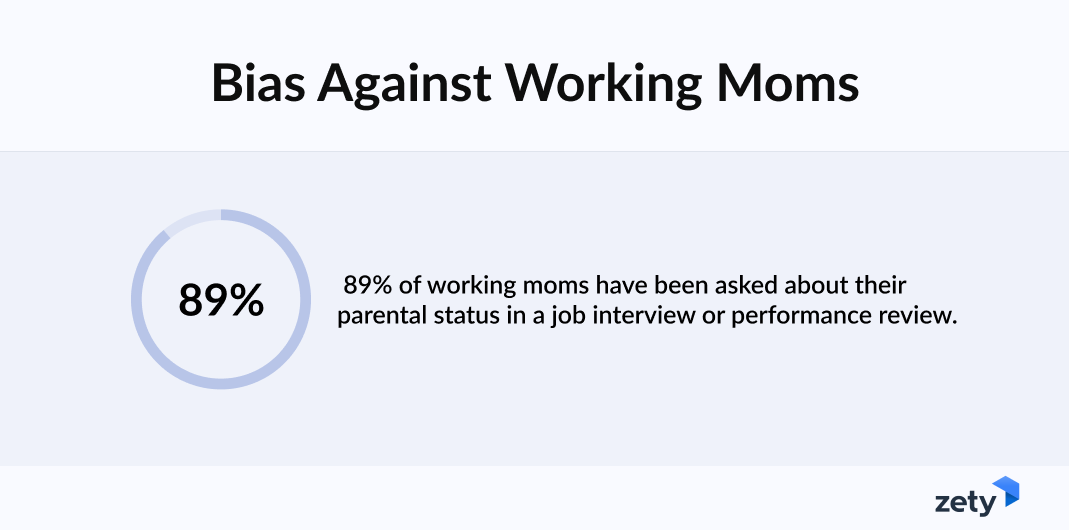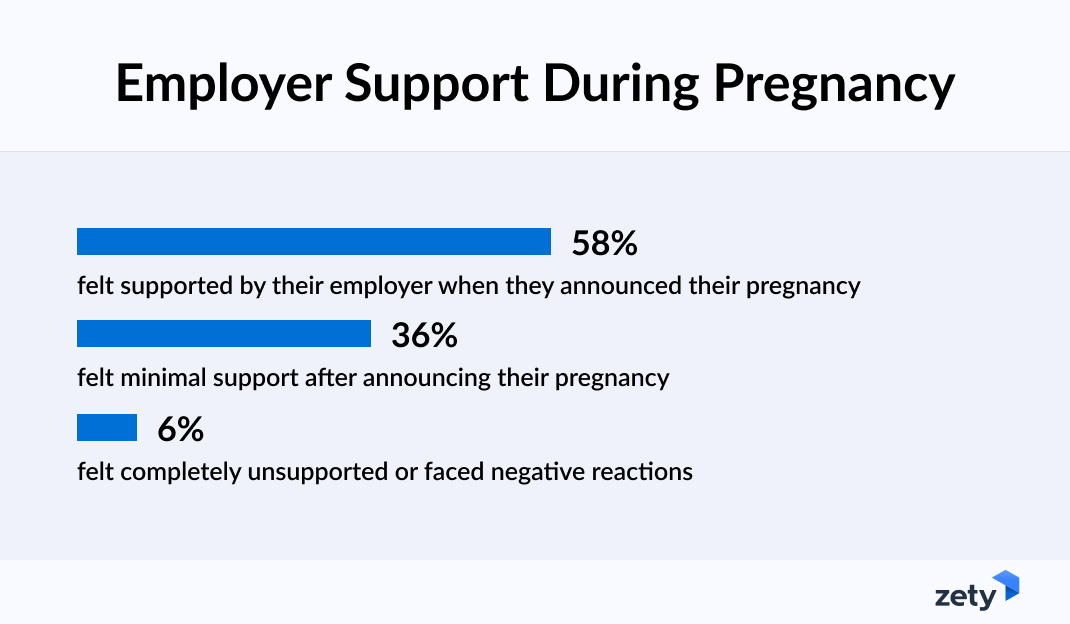
From missed promotions to delayed pregnancies, working mothers continue to face a painful tradeoff: commit fully to their careers or to their families—rarely both.
Zety’s Motherhood & Work Impact Report surveyed nearly 1,000 working moms across the U.S. to uncover just how deep the imbalance goes. The findings make one thing clear: for many women, motherhood still comes with a career cost.
Key findings:
- Motherhood derails careers: 87% say they’ve missed promotions or opportunities due to becoming a mom.
- Major career pivots: 90% of mothers adjusted their career path due to parenthood—59% changed industries entirely.
- Bias in the hiring process: 89% have been asked about their parental status during interviews or reviews.
- Motherhood stigma lingers: 84% say their pregnancy was seen as an inconvenience at work, and 85% feel they must work harder than non-parents to prove their commitment.
- Hiding pregnancy: 77% feared telling their boss about their pregnancy.
Modern Motherhood Carries a Career Warning Label
Before motherhood even begins, women are bombarded with unsolicited advice and career warnings when it comes to starting families, signaling that parenthood and professional success are still seen as incompatible.
- 76% have been explicitly advised to delay having children until they were more "established" in their career.
- 82% have been told that having children would hurt their career.
- 85% feel they must work harder than non-parents to prove their commitment to their career.
- 89% have been asked about their parental status in a job interview or performance review.
- 91% believe women without children have an advantage in the workplace, as they are viewed as more committed and available.
What this means: These warnings aren’t just anecdotal—they create a chilling effect that discourages women from pursuing leadership and motherhood.
Here is a visualization of the data above:

The Career Cost of Having Children
For many mothers, starting a family means making major career sacrifices just to stay afloat in a system that still penalizes parenting.
- The majority of working mothers have altered their career path due to motherhood—59% changed careers entirely while 31% made adjustments such as switching to a more flexible job or reducing hours.
- Since becoming a mother, 66% say their workload has increased.
- 87% have taken a career break due to having children.
- 87% also believe becoming a mother has negatively impacted their career as they missed out on promotions and other growth opportunities.
What this means: When professional success hinges on minimizing parental responsibilities, mothers are pushed to choose survival over ambition.
Work Dictates Family Planning
Career demands not only influence how women work, but when—and even if—they decide to grow their families, often steering deeply personal decisions.
- 57% postponed having a child due to career considerations, and 32% had a child earlier than planned because of work-related concerns.
- 87% of mothers say their workplace experience with their first child influenced their decision to grow their family: 50% chose to stop at one child due to work challenges, while 37% delayed having more children for the same reason.
What this means: When employers shape the timeline of motherhood, it erodes women’s autonomy over their most personal life choices.
Pregnancy Bias in the Workplace
Pregnancy often marks a turning point in how women are treated at work, shifting from valued employee to perceived burden—whether through overt bias or quiet sidelining.
- 77% feared telling their boss or coworkers about their pregnancy, citing worries about job security or negative reactions.
- Although 58% felt supported by their employer when they announced their pregnancy, 36% felt minimal support, and 6% felt completely unsupported or faced negative reactions.
- 84% felt like their pregnancy was seen as an inconvenience at work.
- 55% were given fewer work responsibilities during pregnancy while 34% were given more tasks.
- 81% were asked to return to work early or adjust their maternity leave for their employer’s benefit.
What this means: Support for expectant mothers is inconsistent at best, making trust in employers a gamble many women can’t afford.
Here is a visualization of the data above:

The experiences shared by working mothers in this report highlight a deeper issue: many workplaces are still designed around outdated expectations of who a "committed" employee should be. Until policies and cultures evolve to recognize caregiving as a strength—not a setback—talented professionals will continue to be sidelined for choosing parenthood. True progress means reimagining success in a way that includes, not excludes, mothers.
Methodology
The findings were obtained by surveying 899 working mothers in the U.S. who have children under the age of 18 on April 1, 2025. Participants were queried about their experiences with motherhood as a working professional, responding to various question types, including yes/no questions, scale-based questions gauging agreement levels, and questions that permitted the selection of multiple options from a list of answers.


